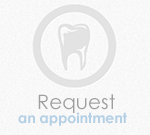 |
|
Home |
Services |
Team |
Our Office |
Contact |
|
| Understanding TMJ: Causes, Symptoms, and Your Path to Recovery |
What causes TMJ (Temporomandibular Joint) Disorders?There are a lot of theories for the causes of this disorder. Some dentists believe that TMD can be caused by issues related to the jaw muscle or other defective parts of the joint itself. Other reasons that could contribute to TMD include:
Common Symptoms of TMJ DisordersTMD can manifest through various symptoms, making it crucial to recognize and address them promptly. Some of the most common symptoms associated with TMJ disorders include:
Treatment for TMJ DisordersTreatment for TMJ disorders can vary depending on the severity and underlying causes of the condition. Here are some common treatment options for TMJ: Self-Care and Lifestyle Changes
Medications
Physical Therapy
Dental Treatments
Stress Management
The treatment plan for each patient is developed individually, according to the patient's needs. It's important to consult with your dentist for an accurate diagnosis and to determine the most appropriate treatment plan for your specific case. Contact us today to schedule a consultation! |
| Hours Monday: 8am - 6pm Tuesday: 8am - 6pm Wednesday: 8am - 6pm Thursday: 8am - 6pm Friday: 8am - 3pm Saturday: upon request |
Contact 416-783-3999 info@upperavenuedentistry.com 1795 Avenue Road Toronto, ON M5M 3Z3 |
Find Us |



